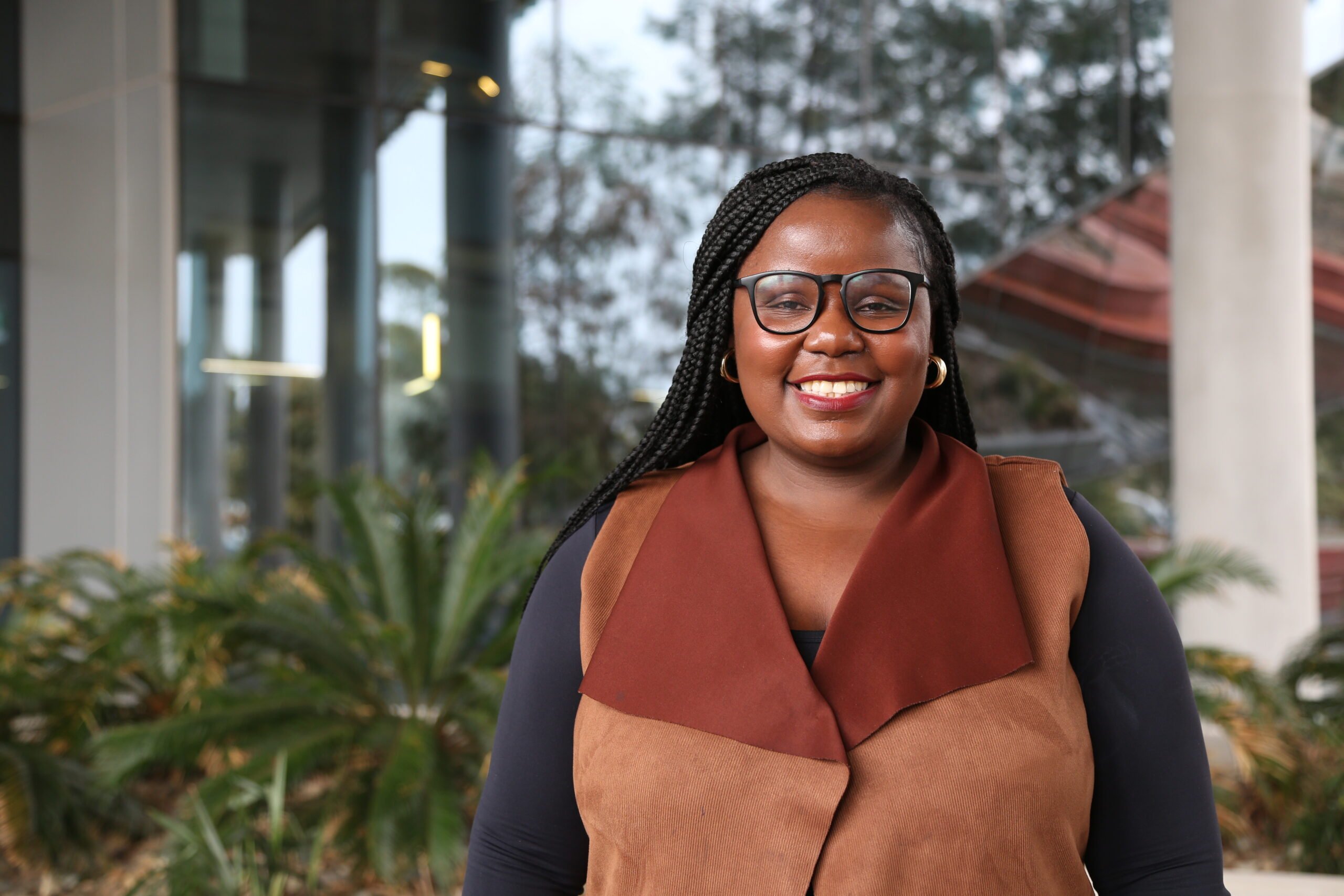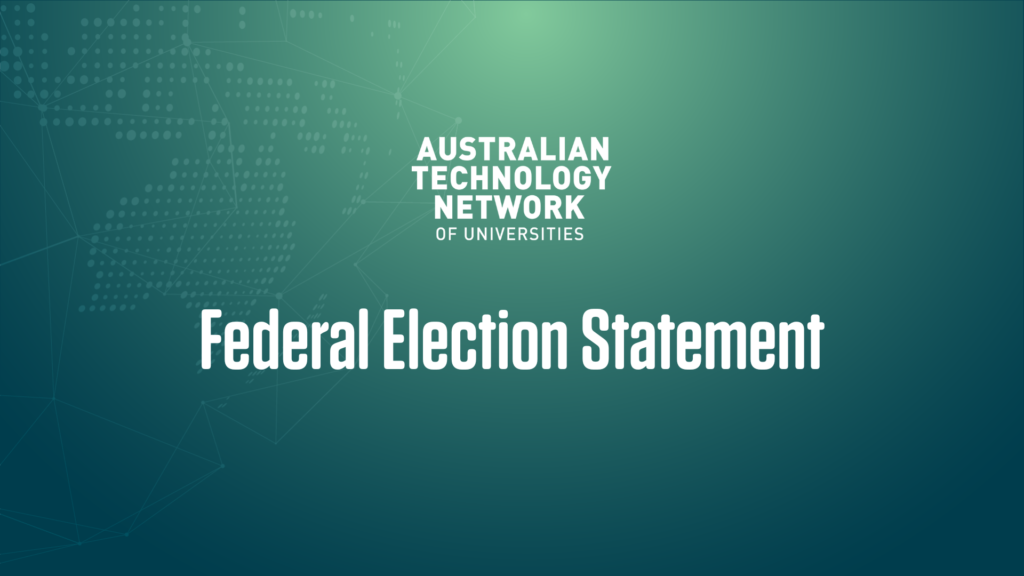Under the Microscope: Agnes Mukurumbira
23 November 2023ATN spoke to Deakin University PhD researcher Agnes Mukurumbira, who is the winner of the recent international 3MT (Three Minute Thesis) 2023 Asia-Pacific final.

ATN spoke to Deakin University PhD researcher Agnes Mukurumbira, who is the winner of the recent international 3MT (Three Minute Thesis) 2023 Asia-Pacific final.

What inspired you to get into your field of study?
My initial interest in food science and safety was birthed from my experiences growing up in Africa. Cases of diarrhoea from consuming contaminated food were a common occurrence and in my young mind, I could not fathom how food meant to nourish us could also cause illness or death. So, I decided to study food science to help address some of these challenges. As I grew older and understood the food systems more, I realised that food safety is not just an African problem but a global one that requires collaborative multi-stakeholder engagement and that I could contribute towards.
If a student stopped you for advice on the best way to approach their time studying with your university, what would you say?
I would tell them Deakin University provides a holistic student experience that not only focuses on academic success but considers overall well-being and can help unleash every student’s potential. Therefore, they must take advantage of the resources available to them, ranging from academic support, mentorship, workshops and counselling.
Do you have a surprising or fun fact to share from your time studying in Deakin?
One of the food spoilage microorganisms I have been working with in my research is called Brochothrix thermosphacta and I swear it smells like caramel.
What is the best thing about being on campus?
I certainly enjoy the social interactions on campus. I think Covid 19 really magnified the importance of social interactions so now I treasure being surrounded by people and constantly engaging with my friends and colleagues on campus.
Australia is a really friendly country that has offered me enriching cultural experiences, exposure to diverse perspectives, and the chance to make global connections, which has been undeniably good. However, it took time to understand the social nuances and make friendships.
Agnes Mukurumbira
What is the biggest challenge facing higher education and research in Australia?
One of the biggest challenges in research and higher education in Australia is definitely access to funding. Getting research funding has become more cutthroat than ever and this obviously stifles research and innovation. There is also a notable gap between academic scientific research and industry applications. Many institutions are still focusing on core sciences and advancing knowledge without looking at the practical and commercial applicability. This disconnect can hinder the translation of cutting-edge research findings into real-world solutions. Bridging this gap is crucial for harnessing the full potential of scientific discoveries and ensuring that innovative research makes a tangible impact on industries.
Do you have a hobby?
My hobbies are very seasonal and currently, I am obsessed with swimming
What is your favourite food?
It’s so weird as a child I hated the staple food in my country sadza. But now being far away from home, sadza with a beef stew and kale is my favourite food.

Can you tell us of a book, film or TV show you recently read or watched that you would recommend and why?
The book I would certainly recommend is Infinite Possibilities: The Art of Living Your Dreams by Mike Dooley. The core message of the book is that we create our reality or fate through our thoughts and words. The book gives a simple yet intellectually stimulating explanation of how our conscious and subconscious minds work and how we can shape the trajectory of our lives by rewiring our brains and ultimately our thought patterns and words.
What’s your dream holiday destination and why?
Definitely Bora Bora ! Crystal-clear waters, luxurious resorts, luscious greenery, mountain backdrops and palm trees, that’s a perfect picture of relaxation.
What is your background and can you describe your experience as an international student in Australia?
I am originally from Zimbabwe but spent the greater part of my adult life in South Africa, so I call both places home. I did my undergraduate and master’s studies in Food Science and Technology at the Durban University of Technology in South Africa. Being an international student has been both great and daunting. Australia is a really friendly country that has offered me enriching cultural experiences, exposure to diverse perspectives, and the chance to make global connections, which has been undeniably good. However, it took time to understand the social nuances and make friendships.
Could you tell us a little bit about your current research?
I am developing antimicrobial packaging which is essentially a specialized type of packaging that can release compounds that can kill and/or inhibit the growth of microorganisms on food. The compounds I will be using to kill and/or inhibit the microbes are native Australian essential oils lemon myrtle and Tasmanian mountain pepper. Due to the high volatility of the essential oils, they can vaporise from the packaging into the food product, affecting microorganisms and extending food product shelf life.

How has Deakin helped in your research?
Deakin University has state-of-the-art research facilities which I have had access to while conducting my research. The university also offers research training and development including workshops, seminars, and resources which have enhanced my skills and knowledge. Furthermore, the university also afforded me the opportunity to intern at CSIRO where I had access to some of the greatest minds in my field as well as specialised equipment and this certainly enhanced my research.
How did participating in 3MT come about?
The 3MT is a yearly competition and I participated in 2022. In 2022, I was eliminated in the first School of Exercise and Nutritional Sciences heat. While I enjoyed, how the competition helped with my science communication I was not keen on participating again. My amazing supervisor Dr Snehal Jadhav encouraged me to participate and I did and I will be forever grateful for her encouragement.
Now that you have won the Asia-Pacific international competition, what are the next steps?
There are no further competitions beyond the Asia Pacific grand final, so now the focus is on disseminating my research through other channels. I am also in the process of finalising my final thesis. Science communication has been my lifelong passion, given public perception and ultimate acceptance of science heavily depend on science communication. Participating in the 3MT has honed my science communication skills, and I would like to share my experiences and possibly empower young women in STEM. I certainly see myself hugely involved in organisations that support and groom women in STEM.
Where do you see yourself once you complete your PhD study?
There are so many things I would like to explore after my PhD, from research to teaching to entrepreneurship to science communication. The sky is the limit really and I look forward to achieving all my wildest dreams!
This interview was conducted as part of ATN Universities’ newsletter ATN Advocate. Subscribe today for more inspiring stories from across our network: https://confirmsubscription.com/h/y/9288D9E0484D3B06

